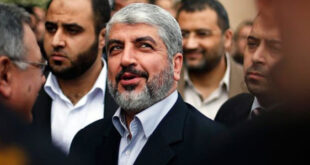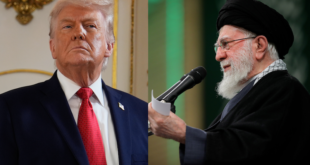U.S. President Donald Trump’s decision to withhold funding to the World Health Organization is drawing criticism from world leaders, as coronavirus infections exceed 2 million worldwide.
China said Wednesday that Trump’s decision would affect all countries, as the world faces a critical stage in combating the coronavirus pandemic.
“This decision weakens the WHO’s capability and harms international cooperation,” said Chinese Foreign Ministry spokesman Zhao Lijian.
The comments from the Foreign Ministry followed Trump’s announcement Tuesday that WHO did not adequately investigate early reports of the virus in China.
Germany joined the defense of the agency, with Foreign Minister Heiko Maas saying Wednesday that assigning blame “doesn’t help.”
“We have to work closely together against #COVID19,” Maas tweeted. “One of the best investments is to strengthen the @UN, especially the under-funded @WHO, for example for developing and distributing tests and vaccines.”
European Union policy chief Josep Borrell tweeted, “There is no reason justifying this move.”
United Nations Secretary-General Antonio Guterres said cutting resources for WHO during a world crisis is counterproductive.
“Now is the time for unity and for the international community to work together in solidarity to stop this virus and its shattering consequences,” Guterres said.
The U.S. is the world’s largest contributor to WHO, with its more than $400 million contribution in 2019, amounting to about 15% of the organization’s budget.
WHO Director-General Tedros Adhanom Ghebreyesus said Wednesday he is “reviewing the impact on our work of any withdrawal of U.S. funding” and that the agency “will try to fill any gaps with partners.”
Tedros said the need for global collaboration is paramount, maintaining, “When we are divided, the coronavirus exploits the cracks between us.”
The WHO chief said the organization is “committed to serving the world’s people,” and added the agency “is grateful to the many nations, organizations and individuals who have expressed their support and commitment to WHO in recent days, including their financial commitment.”
There are more than 2 million confirmed cases worldwide, but with difficulties in accessing tests in many areas, the true figure is surely higher. Johns Hopkins University statistics Wednesday put the worldwide death toll at more than 128,800.
France said its own toll had surpassed 15,000 people, making it the fourth country to do so, along with the United States, Italy and Spain.
Italy and Spain are among several European nations that have started to ease strict lockdowns meant to stop the spread of the virus, while France just extended its measures.
Discussions of when and how to ease the restrictions are taking place in governments all over the world. In the western U.S. state of California, Gov. Gavin Newsom said he will only consider lifting lockdown orders when the number of hospitalizations decline for at least two weeks, testing is more widespread, more protective gear for health care workers is available, and officials have a better ability to track and isolate those who are infected.
India announced Wednesday it plans to allow manufacturing and farming activity to resume in rural areas on April 20, while a nationwide lockdown remains in place until early next month.
The differing measures reflect the path of the outbreak, with earlier hot spots seeing promising signs that the worst could be over, while other parts of the world are just starting to experience higher case numbers.
This has been reflected in several new lockdown orders this week in Africa. Malawi is among the latest, with President Peter Mutharika announcing Tuesday a 21-day order that begins Saturday.
“I would like to urge you to fully comply with the measures because they are for the good of our country,” Mutharika said.
On the economic front, the stay-at-home orders have led to a vast drop in oil consumption.
The International Energy Agency issued a forecast Wednesday of a drop in demand for oil in April of 29 million barrels per day, reaching levels the world has not seen in 25 years.
In New Zealand, Prime Minister Jacinda Ardern announced she and other top officials are voluntarily cutting their salaries by 20% in a symbolic move acknowledging the country’s economic hardships in response to the outbreak.
 Eurasia Press & News
Eurasia Press & News


